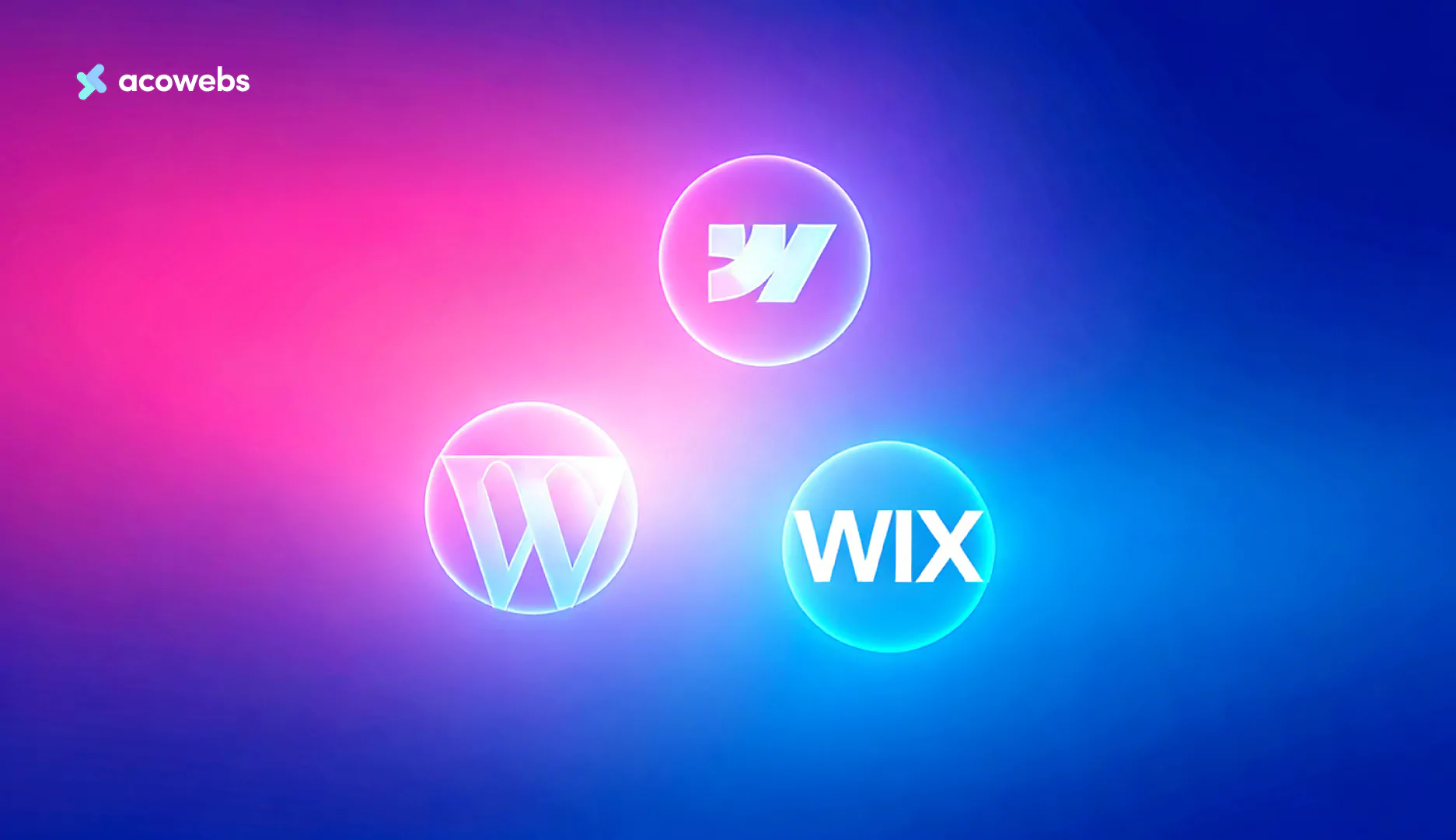Building a website in 2025 requires careful consideration of your platform choice, as this decision will impact everything from design flexibility to long-term scalability. The three most popular website building platforms—WordPress, Webflow, and Wix—each offer distinct advantages and cater to different user needs and technical expertise levels.
WordPress remains the world’s most popular content management system, powering over 40% of all websites globally. Its open-source nature provides unmatched flexibility and customization options, making it ideal for content-heavy sites, blogs, and complex business websites. With over 13,000 free themes and 59,000 plugins available, WordPress offers virtually unlimited functionality.
Webflow has emerged as a powerful alternative for designers and developers who want complete creative control without extensive coding knowledge. This visual web design platform combines the flexibility of custom coding with an intuitive drag-and-drop interface, making it particularly appealing to creative professionals and agencies.
Wix stands out as the most user-friendly option, offering an incredibly simple drag-and-drop interface that requires no technical skills whatsoever. With AI-powered design tools and over 2,000 professionally designed templates, Wix has become the go-to choice for small businesses and beginners who need a professional website quickly.
Each platform serves different audiences: WordPress excels for content creators and developers, Webflow appeals to designers seeking creative freedom, and Wix caters to beginners prioritizing ease of use. Understanding these fundamental differences is crucial for making an informed decision that aligns with your specific needs, technical abilities, and long-term goals.
Ease of Use and Learning Curve
The learning curve varies dramatically across these three platforms. Wix offers the most beginner-friendly experience with its intuitive drag-and-drop interface that guides users through website creation using a simple questionnaire. The platform’s AI-powered Artificial Design Intelligence (ADI) can even generate custom layouts based on user inputs, making it possible for complete novices to create professional-looking websites within hours.
Webflow occupies the middle ground with a moderate learning curve. While it requires more time to master than Wix, it provides extensive educational resources, including courses, tutorials, and an active community forum. The platform’s visual interface allows users to see changes in real-time, making the design process more intuitive than traditional coding.

WordPress presents the steepest learning curve, particularly for users without technical backgrounds. However, its intuitive dashboard and user-friendly interface make content management straightforward once the initial setup is complete. The platform’s extensive documentation and large community provide abundant learning resources for users willing to invest time in mastering its capabilities.
Design Flexibility and Customization
When it comes to design flexibility, Webflow takes the lead with its advanced customization capabilities. The platform provides complete creative control, allowing users to customize every aspect of their website, from layout and animations to checkout processes and transactional emails. Webflow automatically generates clean, optimized code, making it easier for development teams to collaborate.
WordPress offers extensive customization through its vast ecosystem of themes and plugins. The platform’s open-source nature enables unlimited modifications, though achieving highly customized designs often requires coding knowledge or hiring developers. WordPress excels in content management and blogging capabilities, making it ideal for content-heavy websites.
Wix provides moderate design flexibility within its template-based system. While the platform offers hundreds of professionally designed templates and allows for customization, users are somewhat limited by their chosen template. Additionally, switching templates after building a website can result in losing customizations, making redesigns challenging.
SEO Capabilities and Performance
All three platforms offer solid SEO foundations, but with different approaches. WordPress provides excellent SEO capabilities through its clean URL structures, mobile responsiveness, and powerful plugins like Yoast SEO. The platform’s flexibility allows for advanced SEO customizations and optimizations.
Webflow includes built-in SEO tools that help websites rank better on search engines. Users can easily customize meta tags, alt text, and page titles without relying on third-party plugins. The platform generates clean, optimized code automatically, which contributes to better search engine rankings.
Wix offers good SEO capabilities with its built-in optimization features and SEO Wiz checklist. The platform makes basic SEO accessible to beginners, though its capabilities are more limited compared to WordPress and Webflow for advanced optimization strategies.
Pricing and Value Proposition
Pricing structures vary significantly across platforms. WordPress itself is free as open-source software, but users must factor in hosting costs, premium themes, and plugins. This can make WordPress cost-effective for basic sites but potentially expensive for feature-rich websites requiring multiple premium plugins.
Webflow offers pricing plans ranging from free to high-end options starting around $14 per month. The platform includes hosting, security, and a content delivery network, providing good value for users who need advanced design capabilities.
Wix provides the most straightforward pricing with plans ranging from free to moderate costs, with business plans reaching up to $199 per month. The platform’s free plan allows users to test features, while paid plans offer increasing functionality and remove Wix branding.
Final Recommendations
Choose WordPress if you prioritize content management, blogging capabilities, and maximum flexibility. It’s ideal for content creators, businesses with complex requirements, and users comfortable with a steeper learning curve.
Select Webflow if you’re a designer or developer seeking complete creative control without extensive coding. It’s perfect for agencies, creative professionals, and businesses requiring unique, highly customized designs.
Opt for Wix if you need a website quickly with minimal technical knowledge. It’s excellent for small businesses, beginners, and users who prioritize ease of use over advanced customization.




